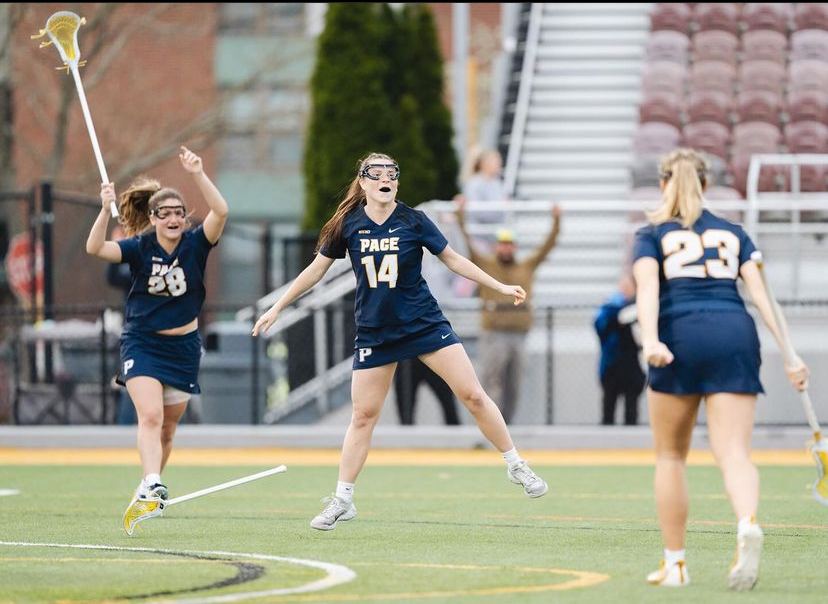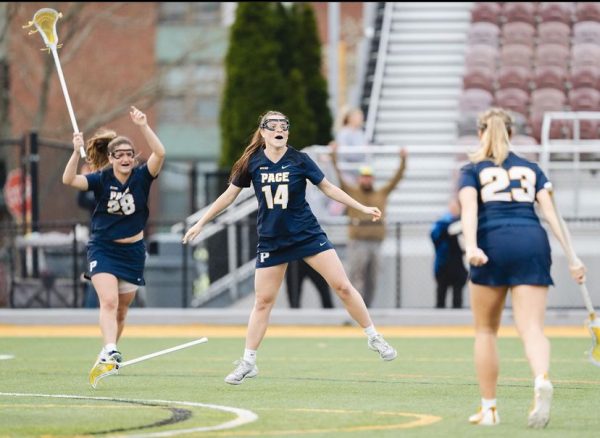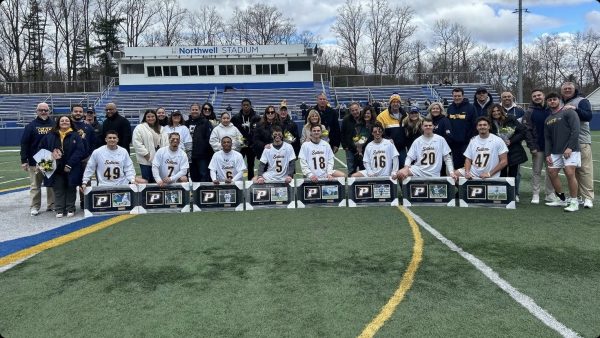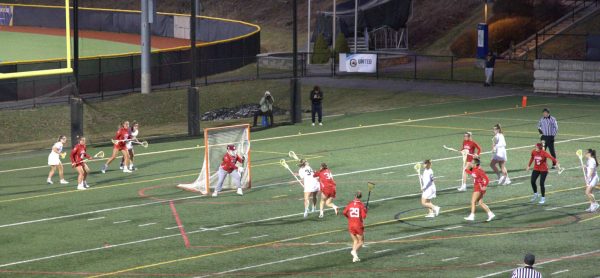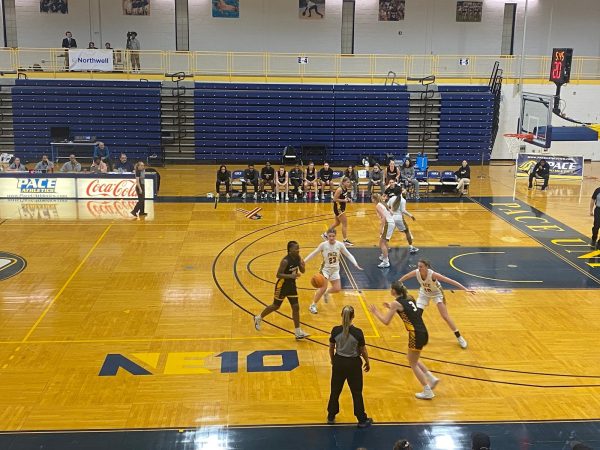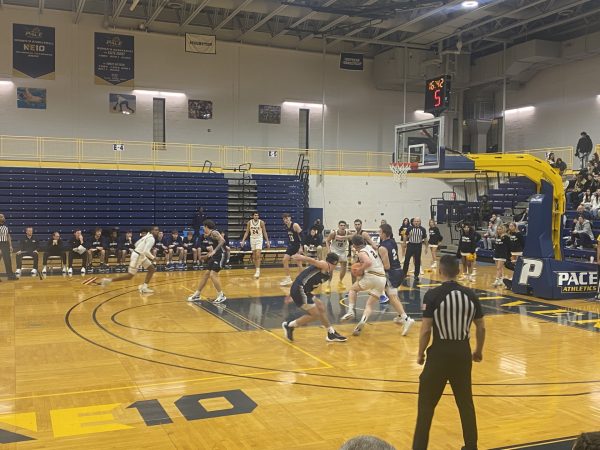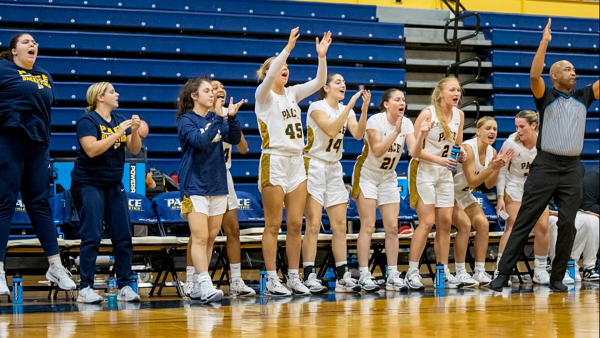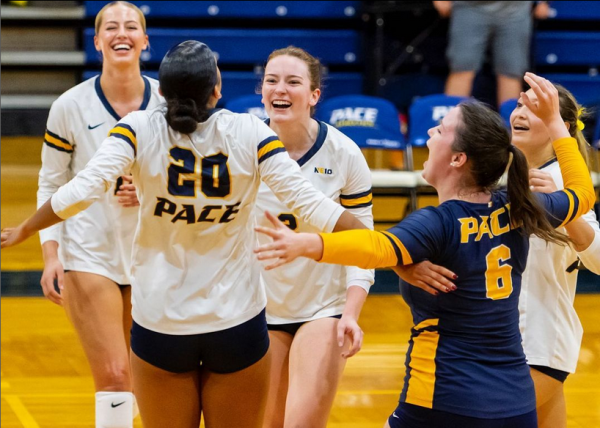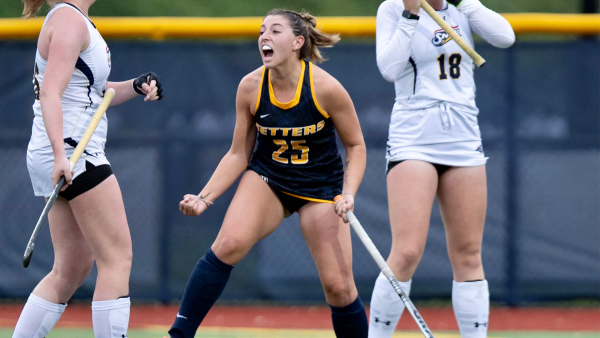The Road from High School Football All-Stars to Pace Setters
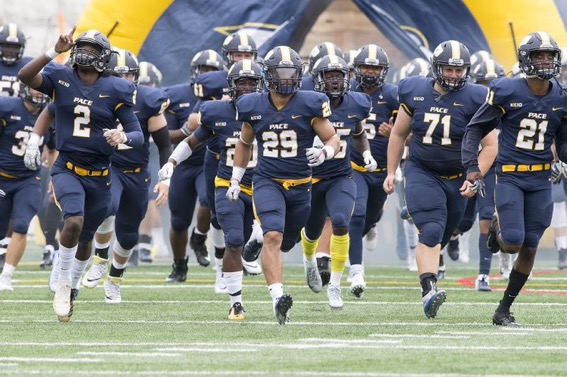
Before making someone a Pace Setter, coaches and recruiting staff commit themselves to an extensive evaluation process.
February 9, 2019
Pace football’s historic 2018 season has led 23 high school student-athletes to commit to becoming the future of the program. Each athlete has gone through evaluation by area coaches, position coaches, offensive and defensive coordinators, and finally by Head Coach Andrew Rondeau.
Rondeau understands that because of Pace’s Division-II ranking, most prospects wait to sign until late winter, in the event that they receive other offers from Division-I schools. However, this does not stop Rondeau from scouting out the best players who fit the Pace program.
“If we’re willing to do the work and scramble,” Rondeau starts, “we’re going to have a better group of students and a better group of athletes who were waiting and not giving us real attention. December is when we can get real traction.”
According to NCAA.org, participation in an NCAA D-II athletics team can give a player many opportunities, including “academic achievement, high-level athletics competition, and community engagement.” This division also features the best championship-participant ratio among the three NCAA divisions, and it emphasizes regional competition to reduce missed class time.
To find the right 23 athletes, Rondeau and his staff divided their attention into three separate delineations; primary, secondary, and national areas. The primary area coaches have the responsibility to know every prospect within that area’s boundaries. In the secondary area, coaches have more room to find and fill a specific need for the team, such as a certain position. The national areas are used rarely, and usually, the player inquires about Pace’s program first.
“The correspondence is amazing,” Rondeau stated. ”Hundreds and hundreds of emails a day, which is crazy. Some are generated by a computer, and some are generated by the initiative of an individual.”
In order to filter down the hundreds of emails to find the best of the best, the coaching staff defines the “non-negotiables” within a position. These factors are based on height, weight, and skill level, and can make or break a prospects chances for playing at Pace.
“Our coordinators drive the bus,” Rondeau explained. “They are going to be able to express their vision accurately. Then, the decision comes to me. My job is the final filter. Every kid that they bring up looks good on video, but I have to look at his academics, the financial circumstances, and if this prospect can really be viable.”
Even with all of the film and numbers, engagement is one of the most decisive trials for Rondeau when he meets a player. Rondeau, who’s entering his sixth season coaching Pace football, has spent these last few weeks meeting with athlete’s families individually to discuss their potential role as a Setter.
“We need families and prospects that are engaged,” says Rondeau. “The best way for us to grow our environment here is when we’ve got a community approach that involves a prospect, his parents, and we understand what we’re doing together.”
Relationships are essential for the eventual creation of further opportunities for players. The Pace coaching staff meets with athletes at their high schools and families in their homes to create the beginnings of a relationship. Coaches reach out to students to invite them to their camps, attend a Pace football game, and eventually visit campus on an official visit. Pace football athletes act as student hosts to the prospects, answering any questions they may have and giving the prospect their own perspective.
“We want to gain their trust, we want to tell them how our program works, and we want them to come to Pace.”
The newest recruiting class consists of 12 defensive players, 10 offensive players, and one new addition to special teams.
Rondeau does not treat recruitment as just a business opportunity, but instead as a lifestyle decision. The incoming 23 Setters should expect to continue the perseverance and hard work that was paraded throughout the previous fall season.



